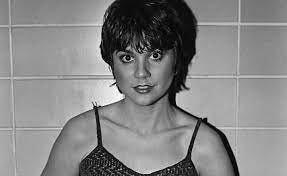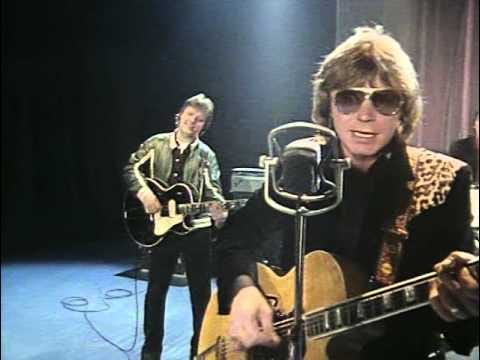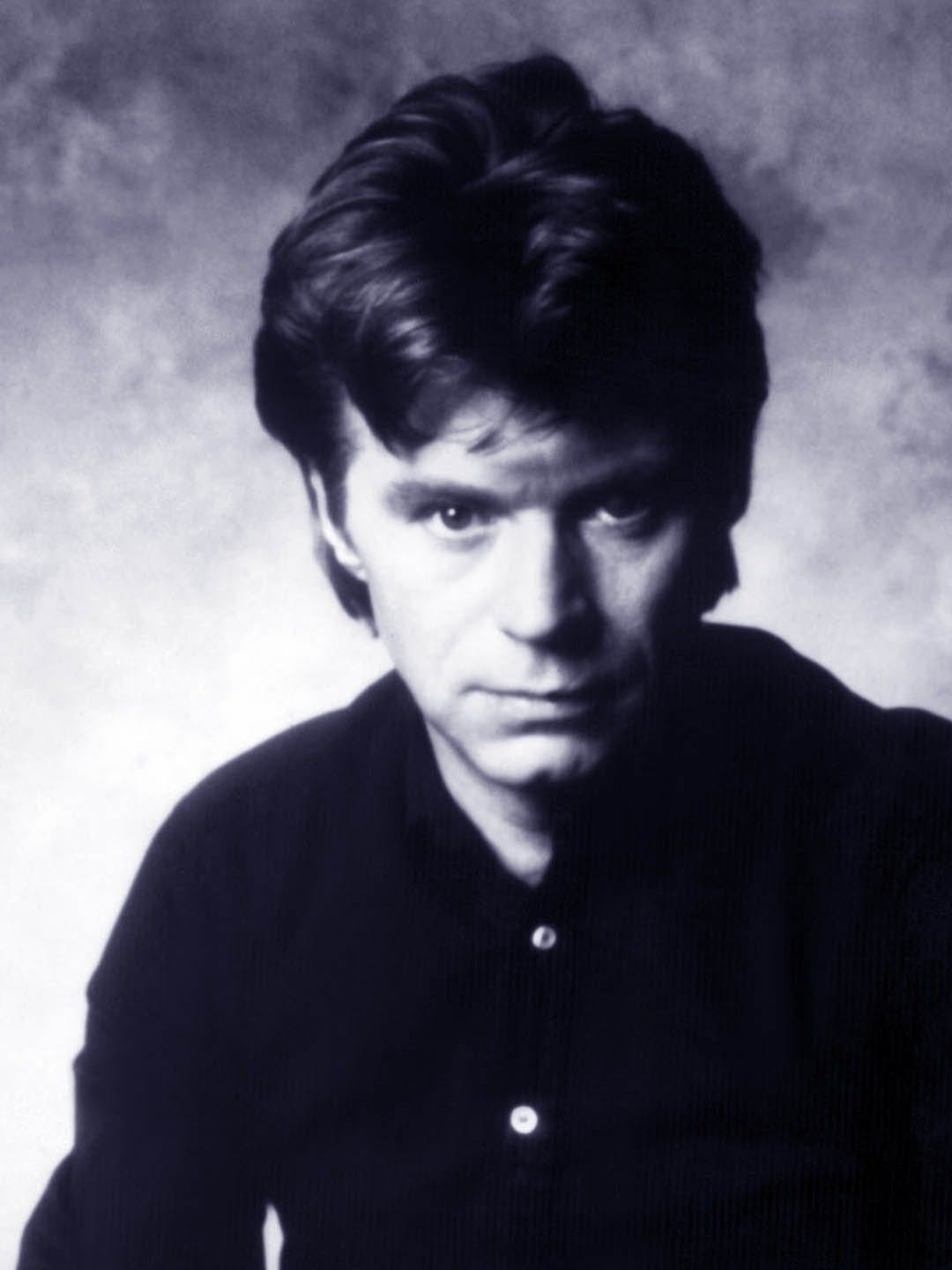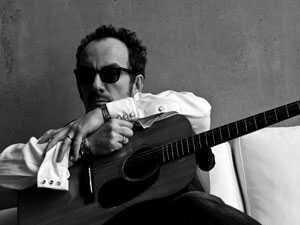Inside Tracks #4: Dave Edmunds "Girls Talk," 1979 + Covers by Songwriter Elvis Costello & Linda Ronstadt, 1980
The gift of song from Elvis to Edmunds results in a fully-realized production I'm wondering if Costello ever envisioned. Then, Linda tries to de-throne Chrissie Hynde & Patti Smith as New Wave Queen!
“For the last time, my version is not a 'cover'; it is the original, first recorded and first released version. I arranged and produced it.”—Dave Edmunds in a YouTube comment, circa 2017
Message received, Dave! Indeed, Edmunds released his “Girls Talk” in June 1979 on Swan Song Records (distributed by Atlantic Records, arranged and produced by Edmunds).
The song’s composer, Elvis Costello, was close behind about eight months later, releasing his comparatively bare-bones cover in mid-January 1980, with Linda Ronstadt, the following month, as this page from SecondhandSongs reflects (“Top of the Pops” was a UK hit-song re-creation album series):
Another Whirled
Edmunds, as he tells the story of the song to Songfacts: “Elvis (pictured above) came to the studio one day, and he said, ‘I’ve got a song for you.’ And he gave me a cassette. Now, it wasn't very good - it was just him on a guitar, and he was rushing through it at a furious pace. At first I couldn't see it.
“And also there were some lines needed, because the verses weren’t symmetrical. He had a verse with four lines in and then a verse with three lines in, so Nick [longtime friend and bandmate, Lowe] and I made up some lyrics and popped them in.
“Nick and I added the line ‘More or less situation...’ because Costello’s version was a line short. I pointed this out to him, but he gruffly replied that ‘that's the way I wrote it. He’s made it quite plain that he doesn’t like my version, which I find inconceivable.
“Then I threw the whole thing right down, got a groove going on it, and put the record together with some acoustic guitar punctuation like Don Everly used to do on the Everly Brothers’ early records [a good example, ‘Problems’ from 1958]. The record came together and I was quite proud of that.”
Edmunds adds these details (elaborating on his Songfacts account), patiently explaining to the incredulous YouTube denizens about how the song was born: “Costello came to the studio when I was recording with [my late-‘70s/early-’80s band], Rockpile (joining Edmunds on vocals and guitar were Nick Lowe, vocals and bass, Billy Bremner on vocals and guitar, and Terry Williams, drums).
“He picked up an acoustic guitar, and played and sang the song into a cassette recorder, and then gave me the cassette, with a view to me recording the song. It was his idea for me to record it. I totally rearranged the song for my version, which was the first version released to the general public.”
“I’m not sure Elvis liked it,” Edmunds told Songfacts in an obvious understatement. “He's quite an intense person, and he’s quick to point out things that he doesn't like. [Laughs]
“I remember playing it to him on the tour bus in America, and he didn’t say much. It sounded great to me, and it got him a Top 5 record [#4 in the UK, #65 in US], so I’m sure he’s not that upset about it, but I would have been delighted if someone had done a turnaround on a song I’d quickly jotted out and came up with a hit single!”
With Jools Holland, his band and a full orchestra, with a bangin’ horn chart…Dave on New Year’s Eve, 2008:
Here, an impressive live performance of “Girl’s Talk” by Dave’s Rockpile on a 1982, UK show. Interviewing him is Scottish performer/songwriter, B.A. Robertson (co-wrote, with Mike Rutherford, “The Living Years” by Mike + The Mechanics, US #1 in 1988). Live performance begins at the 4:07 mark:
As the Word Turns
Specifically, Elvis wasn’t exactly thrilled when Edmunds and Lowe added lyrics to his song [which kicked off Edmunds’ Repeat When Necessary 1979 LP]. The added line comes in the second verse, where after “I got a loaded imagination being fired by girls talk,” Edmunds sings: “It's a more or less situation inspired by girls talk.”
While this gives the song an equal number of lines in each verse, it clearly wasn’t what Costello had in mind, and it’s certainly not a line he would write (especially in a song rife with pointed word play, allegories, and double entendres). When Costello released his cover version in 1980 on his Columbia Records compilation album, Taking Liberties, it was with his original lyric, complete with unbalanced verses:
Just for fun, and with Dave’s kind permission, this video (with audio of both arrangements, including photos of the records and picture sleeves), has Edmunds’ version following Costello’s.
It makes for a revealing demo-like situation, where we can hear (and imagine) what any follow-up artist might have heard from the songwriter’s original vision, and, in this case, how brilliant Edmunds’ arrangement became as a finished and polished product, making a considerably creative something out of not just a whole lot (it’s also the video on which Dave wrote his reminder comments shown):
To discover a similar and recent “Inside Tracks” episode, correcting wrong Internet info about a mid-’70s original, covers, and “pre-covers,” dig in here:
Inside Tracks #3: Ned Doheny "Get It Up For Love," 1976 + Covers by Stephen Michael Schwartz & Johnny Rivers (1974) & David Cassidy (1975)-EXCLUSIVE INTERVIEWS
For “Inside Tracks,” we put a couple of cover versions under the audio microscope, and compare and contrast them to the songwriter’s original version. How similar or dissimilar are they? What did the songwriter intend with the original, and how were the featured covers crafted?
Gall My Children
Sometime in 1980, perennial rock’n’pop hitmaker, Linda Ronstadt, recorded an album purposely created to catch and ride to shore the New Wave “craze” that was cresting in the US for a small handful of years.
Predictably casting aside anything “punk,” she told rock critic, Rolling Stone’s Peter Herbst in 1978, “Well, I like the new wave stuff…” presumably not referring to the just-introduced AquaNet hairspray line.
Enter Mad Love, her 1980 album touted as her (let’s face it) misguided attempt to cash in on a heavily-covered media trend that, in some cases, was topping the charts, both album and single. Surprising many, the album debuted at #5 on the US Billboard album chart!
Whether perpetrated on the unsuspecting Linda (and an undeserving American record-buying audience) by (the late) CEO Joe Smith and Asylum Records, or the album’s producer, the deservedly-respected, Peter Asher, no one knows (or, if they’re smart, no one’s telling).
Smartly, though, she and Asher corralled several of-the-genre players, and enough quirky songs to fill a Stars On 45 12” Disco single. Herbst: “Let’s be clear: Mad Love is not a new wave album. But, it is the album on which she dabbled in the genre, and tried to reckon with it.”

In fact, along with “Girls Talk,” Linda took a stab at two other Elvis tunes: “Party Girl,” and “Talking in the Dark.”
Herbst: “Not only did she cover a trio of Elvis Costello songs on the album (she’d already taken on “Alison” for 1978’s Living in the USA), Ronstadt sang a further three from L.A. power-pop band the Cretones. All three of those were written by the band’s lead singer and guitarist, Mark Goldenberg, who also ended up playing electric guitar on eight of Mad Love’s ten tracks.”
Enjoy Peter Asher’s mix-forward castanets here (played by him), either an appropriate, but surprising call-back to the Phil Spector productions of the early ‘60s, or a prescient peek into Linda’s recording future…maybe both:
In short, to quote whomever crafted the copy for her Mad Love Wiki page, “The carefully-calculated production and promotion of Mad Love reflected the considerable professional risk undertaken by Ronstadt after a succession of multi-platinum hits. As the queen of ‘70s easy-going pop, Ronstadt was unlikely to impress punk and new wave’s skeptical critics and puritanical audiences.”
However silly, commercially crass, and phony this aural play-acting into an unfamiliar musical genre started out to be (especially to those fans and artists heavily invested in the organic, DIY, street-level ethos of punk and new wave), mad props to her talent and popularity that, ultimately, made Mad Love an enviable hit.
Now, if we can only be sure she had this all calculated (and then some) with this outcome all along. I’m more than willing to give her the benefit of the doubt:
More Wiki: “Ronstadt leveraged the success of Mad Love to compel Asylum Records to greenlight two non-pop/rock projects—a collection of torch standards backed by the Nelson Riddle Orchestra, and a collection of classical mariachi music sung in Spanish.
“Previously deemed commercially unviable by the label, both projects were commercial successes on the scale of Ronstadt’s pop albums.” Mad props, then, for her “Girls Talk” and Mad Love.









Cool article, diving into a scene that included many of my favorite artists of that era. I had the luck to catch some of them (Nick Lowe, Graham Parker, Aynsley Dunbar) when they made a swing through California back in the mid 80's. They weren't using the Rockpile or Rumour name but just touring under their own names. Bunch of us found out by accident that they were converging in a tiny venue in Santa Cruz, and on impulse we just went. It was a phenomenal evening for sure. Would have loved it if Edmunds had been there. He was as emblematic of that sound as any of them--straddling punk and new wave on a classic rock foundation.
I am a big fan of your ‘inside track’ articles, by the way! I love hearing the history of particular songs and the many iterations they’ve taken through the years